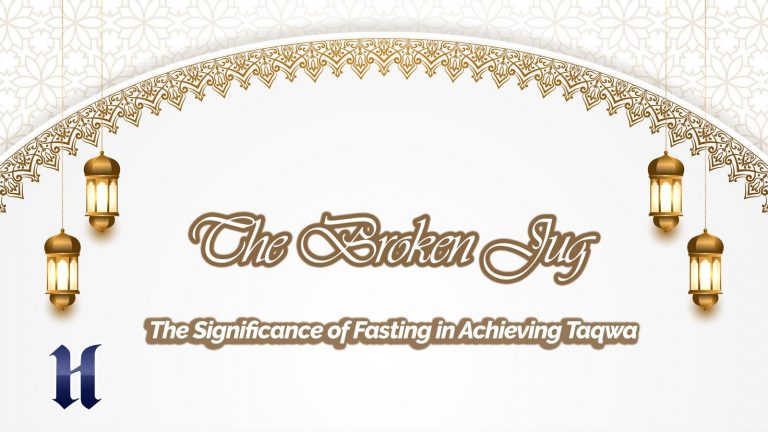Question: After the first verses of the chapter al-Mu’minun were revealed, God’s Messenger, peace and blessings be upon him, prayed, “O Allah! Give us increase (in Your blessings), and don’t take from us; honor us and don’t humiliate us, bestow on us and don’t deprive us, favor us and don’t favor others instead of us; make us well pleased and be well pleased with us, O Most Compassionate of the compassionate!”1 What are the messages this prayer conveys, particularly for the believers in our time?
Answer: Initially, let me point out that as the noble Prophet, peace and blessings be upon him, was the very person who received revelation, it is not possible for someone else to feel and understand these exalted truths in the level of his high horizons. For this reason, it should be understood from the beginning that the explanations here will fall short of reflecting the real depth and immensity of the meaning and content of this prayer.
As expressed in the question, the Messenger of God made this blessed prayer after the first verses of the chapter al-Mu’minun were revealed. The lofty meaning of the verses can be given as follows: “Prosperous indeed are the believers. They are in their Prayer humble and fully submissive (being overwhelmed by the awe and majesty of God). They always turn away from and avoid whatever is vain and frivolous. They are in a constant effort to give alms and purify their own selves and wealth. They strictly guard their private parts, and their chastity and modesty, save from their spouses, or (as a permission for men) those (bonds- maids) whom their right hands possess – for with regard to them they are free from blame. But whoever seeks beyond that, such are they who exceed the bounds (set by God). They are faithful and true to their trusts (which either God or society or an individual places in their charge), and to their pledges (between them and God or other persons or society). They are ever-mindful guardians of their Prayers (including all the rites of which they are constituted). Those (illustrious ones) are the inheritors, who will inherit the highest floor of Paradise. Therein they will abide forever” (al-Mu’minun 23:1–11).
After the revelation of these verses, which are a gift of God Almighty to the Messenger of God and his followers, the noble Prophet felt with its entire profundity the glad tidings that believers with the attributes counted here will attain deliverance. Thus, he made the above mentioned prayer reported by the Companions, the same way as he opened his hands in thankful response to the showers of blessings in the form of revelation in different instances and expressed his feelings to God Almighty.
The First Demand
At the beginning of this prayer, God’s Messenger says, “Give us increase (in Your blessings), and don’t take from us…” As the first possibility that comes to mind, the noble Prophet may have asked God Almighty to increase the number of Muslims, as a multitude of Muslims has always been an ideal he dreamed of. We see the following piece of information in some sayings narrated about the subject: Different communities were shown to the Messenger of God and when he saw a large group among them, he began to hope that they were his followers. However, he learned that they were the followers of Prophet Moses, peace be upon him, and he was told to look to the horizons in order to see his own followers. When he looked at the horizon, he saw that a greater crowd than the one he saw before, covering the entire horizon. His blessed heart was pleased, glad, and satisfied with such a view.2
We can see his strong demand for the increasing of Muslims in his encouragements for marriage as well. For example, he stated, “Get married and reproduce, since on the Day of Judgment I will be proud of your multitude against other communities.”3 Since marriage is an individual, as well as a familial issue in one respect, it remains simple in comparison to the substantial matters of religion, and it can be said that marriage has a relative value near those substantial matters. Additionally, the noble Prophet counseled his followers to get married and reproduce, stating that that would make him proud. Let me note that being proud in this context means overflowing with gratitude before the bestowals of God Almighty.
Numeric Multitude Should Not Be the Real Target
As a second possibility about the demand “Give us increase, do not take from us!” it is possible that there is a demand from God Almighty in terms of increase in quality, because it is quality that makes the multitude worthy. Sole numeric multitude without quality has no importance on its own. Much greater communities in number have not been able to accomplish what some ten or twenty thousand Companions did. Those first and unique heroes of Islam upset the plots of the Sassanid and Byzantine empires, the two superpowers of their time, brought them to their knees, thus changing the fate of the world.
Although it is commonly said that the Muslim population in the world is around 1.5 billion, it is not possible to say that Muslims are fulfilling a function in proportion with their number, because today they are not in the state desired by the Qur’an. Indeed, they are at each other’s throats. Muslims are struggling against one another and consuming themselves in the vicious cycle of confrontations and conflicts. As they cannot achieve a proper concord and unity, they are using up their energies in a web of confrontations, failing to be blessed with Divine help to allow them to take their place in the balance of powers between world states. Their multitude in number does not help for this great mission that they are supposed to fulfill.
Actually, when we look at history from this perspective, it is possible to see the significance of quality vs. multitude so explicitly and clearly with its striking examples. For example, so many people who set on the road with sincere intentions at a certain period in history made impressive moves, realized breakthroughs at full gallop, and realized very fruitful accomplishments. However, as the same people began to lose their qualified state in spirit, meaning, feelings, thoughts, together with the religious liveliness of their heart and spirit, let alone make progress, they could not even retain the position they had gained in spite of being greater in number in comparison to the past. When they forgot the considerations of glorifying the name of God but gave in to comfort, laziness, love of status, and fear, the multitude of their number did not help them, and they lost their power, influence, and weight. In this respect, it is possible to say that while the noble Prophet prayed “Give us increase, do not take from us!” he was making a demand for an increase of quality in terms of the believers’ state, and their credit and worth in God’s sight, and that he implored God in this respect so that He does not let them experience loss in this sense.
The Greatest Blessing Is Acknowledging a Blessing as a Blessing
The prayer continues as “Honor us and do not humiliate us!” and this means, “Raise our worth with Your favors and do not let us fall into misery!” The beloved Prophet is not asking for worldly means, power, or spiritual marvels here, but rather to be honored with Divine graces. Thus, God’s honoring is a very important bestowal that should be sought. In addition, as the original Arabic word is inflected in the causative (if’al) form, its meaning can also be: “O God, honor us, and makes us feel all the time that each of these favors is a Divine blessing.” Awareness of Divine graces is a means of protection against experiencing lapses and falls, because a person who is aware of Divine graces knows that those favors he or she enjoys are from God in actual fact. If the person ascribes these to his own aptitudes and abilities, and thus speaks like Korah who said, “All this has been given to me only by virtue of a certain knowledge that I have” (al-Qasas 28:78), then it will be an invitation for falling into misery. In this respect, one must open his hands and constantly pray: “O God, do not let me fall into any misery, either as a consequence of the evils I personally committed or as a trial from you!”
O God, Do Not Punish Us With Deprivation!
The prayer continues: “Bestow on us, and do not deprive us.” This means: “O God, bestow on us constantly and abundantly, and do not let us suffer deprivation.” Believers can ask for some worldly blessings that will not lead them astray. And it is very important to ask for everything one wishes from God Almighty alone. The noble Prophet said, “Let everyone of you ask all of his needs from God, even down to a shoelace that has broken off.”4 In this respect, be it raising a family like a corner of Paradise or a righteous child, we should ask for all of our needs from God. The criterion to determine the value of this request is a person’s horizons, position, and targeted ideal. Having a peaceful family, righteous children, and sufficient livelihood that will not leave one dependent on others are definitely blessings to be asked from God. However, a person who lives with a concern for making others live in the true sense of the word instead of living for himself, who is devoted to the thought of revival, and who is full of compassion toward the entire humanity may not acquire any of these. What fills such a person’s horizons is: “My God! I do not want to see in my lifetime any victories and accomplishments realized through me or through which I think so. But please O God, enable me to behold from a corner of my grave the message of Islam flourishing throughout the world, the Muhammadan spirit spreading its wings all around, calls to prayer resounding everywhere, and all hearts beating in relation to you!”
In this respect, it is possible to say that while saying, “Bestow on us, do not deprive us,” everybody is asking for something in accordance with the horizons of their own ideals. While one asks something of a few coins’ worth, another may ask for millions. Another still may not suffice with that and becomes a nominee for eternity. As some wish to attain worldly blessings, personages with immense horizons such as Imam al-Ghazali, Imam Rabbani, and Bediüzzaman constantly ask for attaining His good pleasure and opening the way to Paradise for others. In all of their acts, they live with considerations such as: “O God, take my life fifty times a day, if necessary, but I am begging you O Lord! Save from this misery and disgrace, Your Prophet’s followers who have never fallen to such a wretched condition!”
It is possible to say that the people who open their hands in prayer, in a way, voice the considerations inspired by the level where they stand.
The Greatest Disaster Is Muslims’ Subjugation
The prayer continues: “Favor us and do not favor others over us…” This means: “O God, if there will be a favor, please favor us over others but not vice versa.” If we elucidate that, the noble Prophet asks God to not let others come and subjugate Muslims.
God’s favoring Muslims over others can be in different forms. For example, if we do not give servanthood its due, do not prove to be worthy of trust, and make an about-face from religion, God Almighty may remove us as a player in the balance of world powers and bring others instead. For this reason, we should ask for being endowed with the qualities of people worthy in God’s sight. We must pray: “My God, do not bring others to replace us! Whatever You will to be realized, let it be done through us, please!” If God throws us aside like some old furniture and brings others in our place, it will condemn us to our own worthlessness.
Another Type of Trial: Favoritism
With respect to favoritism, the Messenger of God, blessings and peace be upon him, drew our attention to a different reality by informing us of the negative aspect of favoring: “You will meet favoritism after me. So show patience (in the face of such attitudes very difficult to swallow) so that you meet me near the pool (of the heavenly Kawthar).”5
After he passed from this world, such things did happen. Although the Qur’an appreciates and praises the Companions who are from the first and foremost6 who embraced faith, some people from later generations failed to understand it and were openly unfair to some of those heroes who are very worthy in the sight of God and His Messenger. For example, the Khwarijites failed to appreciate the worth of the prince of the chivalrous, the valiant lion, and the Prophet’s son-in-law Ali ibn Abi Talib. In the same way, most people of the time did not appreciate the worth of the noble Prophet’s grandsons Hasan and Husayn.
Some administrators who came in later periods also failed to retain the justice observed during the time of the Rightly Guided Caliphs. For example, when there was a question of assigning someone to an administrative position or dividing war gains, they immediately favored their own relatives. None of the Rightly Guided caliphs assigned their relatives to positions by favoring them. They never gave privileges to their relations and never showed favoritism; if responsibilities are not given to those eligible for them and favoritism begins, the fall of that people ensues.
The noble Prophet mentions that there will be favoritism after him and counsels his followers to be patient until meeting him as patience leads to deliverance. This counsel is a very important message for believers in our era as well, as those who make assignments might do injustice to people more qualified for a certain task. Let them do wrong! What really matters is continuing to serve on the righteous path of God without caring for these trifles. The devoted souls must retain their philosophy of not asking from others in dignified contentment and wait for what God Almighty ordains; Divine acts have always been good. As past acts are the most convincing reference for future acts, then it means that He will realize good things in the future too. Given that we do not fail at our loyalty, trust, and adherence to Him.
Peak of Servanthood: The Good Pleasure of God
The final request in the prayer is “make us well pleased and be well pleased with us!” Actually, these two have never been separated from one another because if God is well-pleased with a servant, that person is also well-pleased with Him. In the same way, a servant’s welcoming what God decrees is an expression of that person’s being well-pleased with Him. Saintly personages hold different considerations on the cause and effect between the two. Some said that a person’s giving his or her willpower its due and requesting the path that leads to God’s good pleasure yield the expected result. They related this to the following saying of the Messenger of God: “If you wish to know Your place in God’s sight, look at God’s place at your sight.”7 That is, your degree of valuing Him determines your value in His sight. If you love Him more than anything else, and value Him more than everything in the world, then you receive the same degree of value in the sight of God and the celestial beings.
Others have stated that if God is not well-pleased with them, they cannot be well-pleased with Him, and explained this view with the fact that God’s being well-pleased has priority of order in verses stating the meaning: “God is well-pleased with them, and they are well-pleased with Him” (al-Maedah 5:119).8 Another group of scholars, including Imam Qushayri, state that with respect to the beginning, it depends on the servant’s willful choice and deed, and it is an unveiling of a spiritual reality and a spiritual state with respect to its result.
If we view this issue from the perspective of the Maturidi school of thought, a person must initially make a willful effort in compliance with gaining God’s good pleasure as a simple condition of causality. And this depends on that person’s reading himself and the whole creation correctly, as well as interpreting the verified truths of Islam correctly. When a person is well-pleased with God, then God Almighty will favor that person with His immense good pleasure special to Himself.
Let me make a final point here. The influence of each of the points that the noble Prophet asks in his blessed prayer is essential in a believer’s life. For this reason, we should constantly ask for these same blessings from God Almighty in our prayers.
1. Ahmad ibn Hanbal, Al-Musnad, 1/34.
2. Sahih al-Bukhari, Tibb, 17, 41; Riqaq 50; Sahih Muslim, Iman, 374.
3. Abdurrazzak, Al-Musannaf, 6/173.
4. Abu Ya’la, Al-Musnad, 6/130.
5. Sahih al-Bukhari, Fitan, 2; Sahih Muslim, Imara, 48.
6. “The first and foremost (to embrace Islam and excel others in virtue) among the Emigrants and the Helpers, and those who follow them in devotion to doing good, aware that God is seeing them—God is well- pleased with them, and they are well-pleased with Him…” (at-Tawbah 9:100).
7. Abu Nuaym, Hilyatu’l-Awliya, 6/176.
8. See at-Tawbah 9:100; al-Mujadilah 58:22; al-Bayyina 98:8.
This text is the translation of “Efendimiz’in Kuşatıcı Bir Duası.”






